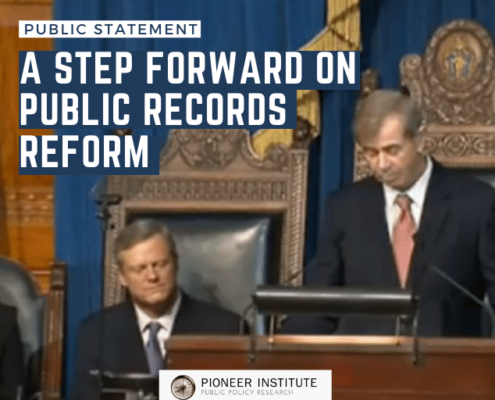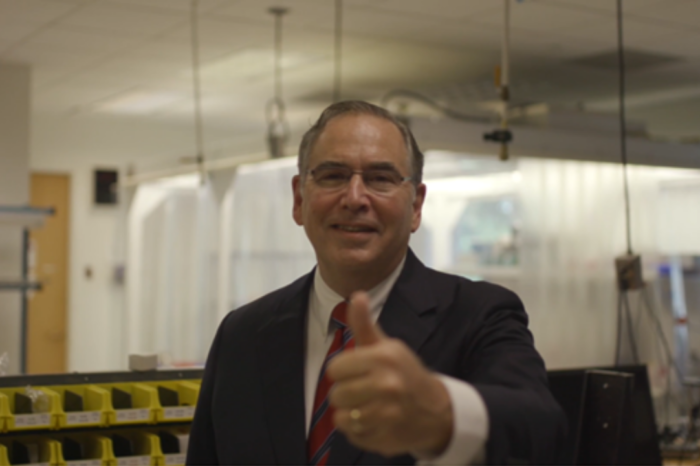Celebrating Leadership: Watch Pioneer’s video tribute to Stephen D. Fantone, former Board Chair
/in Featured, News /by Editorial StaffMany of you know that Pioneer Institute has recently announced a leadership transition regarding its Board of Directors. Stephen D. Fantone, who has served as Board Chair since 2012, has stepped down and passed the torch to Adam Portnoy, who will guide the Institute as it embarks on a new strategic plan, Pioneer2024. As we look forward to our future, we also reflect on our successes, and acknowledge the deep commitment and stewardship that Stephen has shown this organization for almost a decade as Chair and, for many years prior to that, as a Board member and supporter. Stephen will continue to be involved with Pioneer in a new capacity – stay tuned for more information!
We are proud to present a video tribute, below, in which we share with our community Stephen’s reflections on his involvement with Pioneer, along with heartfelt appreciation from an array of Pioneer Board directors and staff members. We hope you enjoy it!
Click on the image below to watch the video:
From all of us at Pioneer, and on behalf of our many supporters, thank you, Stephen, for your extraordinary commitment to this organization!
Learn about membership and giving opportunities with Pioneer!
Recent posts
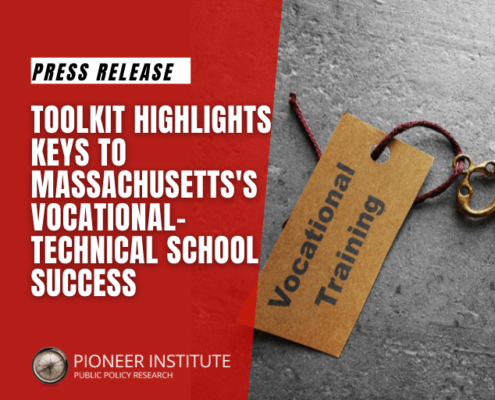
Toolkit Highlights Keys to Massachusetts’s Vocational-Technical School Success

Pioneer Institute Expects That Massachusetts Taxpayers Will Be Refunded $3.2B Due To State Revenue Cap

Survey of Business Sentiment: MA Income Tax Hike Would Lead to Employer Exodus

Study Finds Pension Obligation Bonds Could Worsen T Retirement Fund’s Financial Woes

As States Compete for Talent and Families, Massachusetts Experienced a Six-Fold Increase in Lost Wealth Compared to a Decade Earlier

Book Finds Massachusetts Voc-Tech Schools Are National Model, Calls for Expansion

METCO Works Well, Small Tweaks Could Make It Even Better, Study Says

Book Reveals How Tax Hike Amendment Would Damage Commonwealth’s Economic Competitiveness
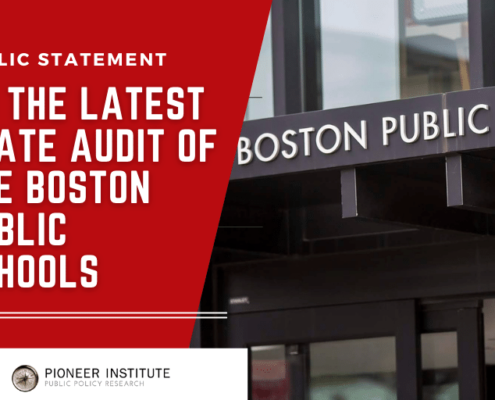
Pioneer Institute Statement on the Latest State Audit of the Boston Public Schools

Study Documents The Design Challenges, Contracting Issues, And Delays Facing New MBTA Fare Collection System

Study Finds Continued Growth in Education Tax-Credit Scholarship Programs
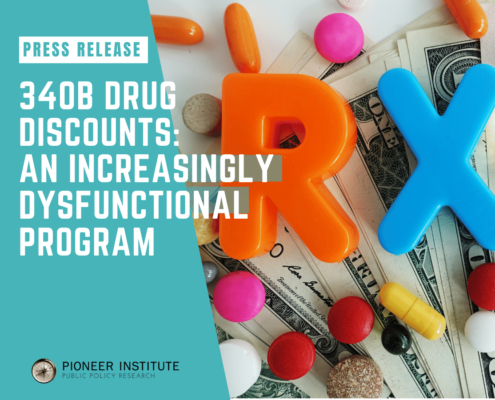
Massachusetts Hospitals Pull Back on Charity Care as Revenue from Federal 340B Drug Discount Program Explodes

Study: Legislature Likely to Reduce Spending on Education and Transportation from Other Revenue Sources, Replace Cuts with Surtax Money
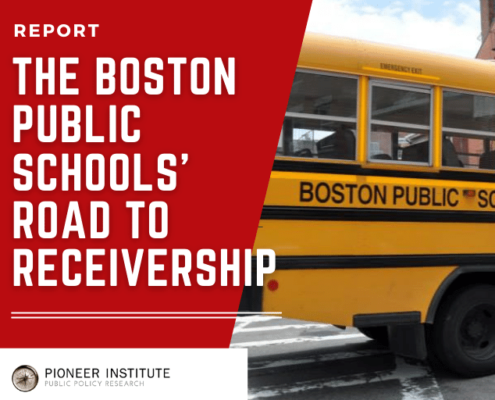
Study Recommends State Receivership for Boston Public Schools

New Pioneer Institute Law Center to Focus on Educational Opportunity, Economic Freedom, and Accountable Government

New Study Shows What Works for Civics Education

Study Finds Bus Rapid Transit Can Offer Cost-Effective Benefits
